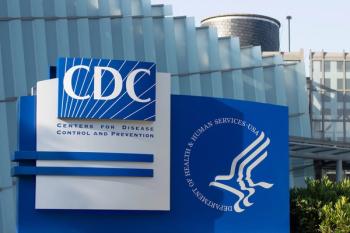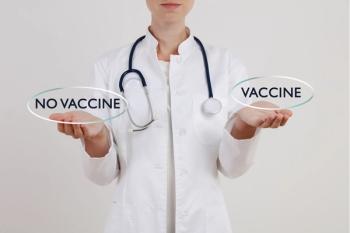
New study addresses cost and consequences of poor adult vaccine adherence
Adult vaccination rates in the U.S. are low, and a new study offers insight on the consequences of missed vaccinations and how to close the gap.
Maintaining key immunizations is a vital part of the healthy aging process alongside diet and exercise, yet meeting target vaccination rates in adults remains a challenge.
The new study,
Adult vaccination rates in the United States are currently lower than in most developed countries, according to the report, meaning that preventable diseases continue to strike and burden healthcare resources-especially in the elderly.
The report places the blame for low vaccination rates in adults, in part, on a lack of knowledge and understanding about the importance and benefits of vaccinations, as well as on inconsistencies by healthcare providers on recommendations and cost information.
Another problem with immunity and vaccination in older adults, the report notes, is lower efficacy of some vaccines as individuals age, and researchers suggest new vaccines that include novel characteristics to improve efficacy in older adults are needed.
Better vaccines are one part of the solution, but physicians, other healthcare providers and public health officials must make immunity and discussions about vaccination a life-long process, not just one that ends in childhood, the report notes.
T. Mark Doherty, PhD, a researcher for GSK and one of the study authors, said the report was aimed at identifying problems and solutions in adult vaccination.
“Vaccine coverage in adults is often poor, even for recommended vaccines, with a resulting substantial burden of disease. Discussing or recommending vaccines with patient is the first and perhaps most important step in improving this failing,” Doherty said. “Improving vaccination rates in adults is seen as key not only to reducing disease in that population, but also expected to significantly improve quality of life.”
Doherty said the report uncovered a variety of vaccine barriers for different populations.
“In some cases, cost and access to healthcare are issues, in other cases not so much. One finding though, which was consistent across many studies was that lack of a doctor’s recommendation was probably the single biggest factor,” Doherty said. “The second factor was lack of awareness in patients that vaccines were recommended for them. Together these two things mean that adults often do not proactively seek vaccination, and doctors do not always discuss vaccination when they do see patient-in part, because adults typically visit doctors only when they are ill, and the focus is thus on the illness, not on future preventive care.”
Education is key to overcoming these barriers, Doherty said, and clinicians must be educated and in turn teach their patients about the importance of vaccination in preventive healthcare.
“Vaccination is an important preventative measure for good health, in the same way that not smoking, or getting enough exercise is,” Doherty said. “Healthcare providers need to keep up to date on recommendations for their patients and understand the need to initiate discussions on vaccination.”
Doherty said roughly 40,000 premature deaths are attributed to vaccine preventable diseases annually, and almost all of these occur in adults. The costs of these preventable illnesses-based on absences from work or hospitalizations of adults-are estimated at around $9 billion each year, he added.
Doherty said he hopes studies like this will help generate greater awareness and action from government healthcare agencies and healthcare providers.
Newsletter
Stay informed and empowered with Medical Economics enewsletter, delivering expert insights, financial strategies, practice management tips and technology trends — tailored for today’s physicians.






